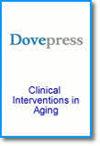开发和评估用于逆转老年人认知能力衰弱的多领域干预模块的内容有效性和可接受性
IF 3.7
3区 医学
引用次数: 0
摘要
目的:目前针对认知虚弱的多领域干预措施非常有限。因此,本研究旨在开发和评估扭转老年人认知虚弱的多领域干预模块(iAGELESS)的内容有效性和接受度:本研究分两个阶段进行:第一阶段包括开发多领域干预模块 iAGELESS 和评估内容有效性,第二阶段包括评估 18 名医疗保健和社会护理提供者、13 名患有认知虚弱症的老年人和 13 名护理人员对该模块的接受程度。内容效度指数(CVI)用于量化内容效度。受访者填写了一份调查问卷,其中包括社会人口学信息,然后对模块的内容、术语和图形进行了接受度评估。然后对数据进行了描述性分析:结果:开发了多领域干预模块 iAGELESS。该模块具有适当的内容效度(总体 CVI = 0.83)。所有护理人员、92% 的认知虚弱老年人以及 83% 的医疗保健和社会护理提供者对该模块的整体内容表示满意。50%以上的接受者对模块中的术语、句子长度、图片、信息、颜色和字体大小的易用性表示满意:iAGELESS模块显示出了良好的内容有效性,并得到了广泛接受,因此值得在未来的研究中使用,以确定其在逆转老年人认知虚弱方面的有效性。本文章由计算机程序翻译,如有差异,请以英文原文为准。
Development and Evaluation of Content Validity and Acceptance of a Multidomain Intervention Module for Reversal of Cognitive Frailty Among Older Adults
Purpose: There is a limited availability of multidomain interventions that target cognitive frailty. Thus, the aim of the present study was to develop and evaluate the content validity and acceptance of the multidomain intervention module to reverse cognitive frailty among older adults (iAGELESS).
Patients and Methods: This study was conducted in two phases: Phase I included the development of the multidomain intervention module iAGELESS and evaluation of content validity, while Phase II consisted of evaluating the acceptance of the module among 18 healthcare and social care providers, 13 older adults with cognitive frailty, and 13 caregivers. Content validity index (CVI) was used to quantify the content validity. Respondents completed a questionnaire which consisted of information on sociodemographic, followed by module acceptance evaluation with respect to content, terminologies, and graphics. The data was then analyzed descriptively.
Results: A multidomain intervention module, iAGELESS was developed. The module was found to have appropriate content validity (overall CVI = 0.83). All the caregivers, 92% of older adults with cognitive frailty and 83% of healthcare and social care providers were satisfied with the overall content of the module. More than 50% of those who accepted the module had satisfactory consensus on the ease of the terminologies, length of sentences, pictures, information, color, and font size included in the module.
Conclusion: The iAGELESS module demonstrated good content validity and was well accepted, thus warranting its utilization in future studies to determine its effectiveness in reversing cognitive frailty among older adults.
Keywords: aging, cognitive frailty, multidomain intervention module, older adults, reversal
Patients and Methods: This study was conducted in two phases: Phase I included the development of the multidomain intervention module iAGELESS and evaluation of content validity, while Phase II consisted of evaluating the acceptance of the module among 18 healthcare and social care providers, 13 older adults with cognitive frailty, and 13 caregivers. Content validity index (CVI) was used to quantify the content validity. Respondents completed a questionnaire which consisted of information on sociodemographic, followed by module acceptance evaluation with respect to content, terminologies, and graphics. The data was then analyzed descriptively.
Results: A multidomain intervention module, iAGELESS was developed. The module was found to have appropriate content validity (overall CVI = 0.83). All the caregivers, 92% of older adults with cognitive frailty and 83% of healthcare and social care providers were satisfied with the overall content of the module. More than 50% of those who accepted the module had satisfactory consensus on the ease of the terminologies, length of sentences, pictures, information, color, and font size included in the module.
Conclusion: The iAGELESS module demonstrated good content validity and was well accepted, thus warranting its utilization in future studies to determine its effectiveness in reversing cognitive frailty among older adults.
Keywords: aging, cognitive frailty, multidomain intervention module, older adults, reversal
求助全文
通过发布文献求助,成功后即可免费获取论文全文。
去求助
来源期刊

Clinical Interventions in Aging
GERIATRICS & GERONTOLOGY-
CiteScore
6.20
自引率
2.80%
发文量
193
期刊介绍:
Clinical Interventions in Aging, is an online, peer reviewed, open access journal focusing on concise rapid reporting of original research and reviews in aging. Special attention will be given to papers reporting on actual or potential clinical applications leading to improved prevention or treatment of disease or a greater understanding of pathological processes that result from maladaptive changes in the body associated with aging. This journal is directed at a wide array of scientists, engineers, pharmacists, pharmacologists and clinical specialists wishing to maintain an up to date knowledge of this exciting and emerging field.
 求助内容:
求助内容: 应助结果提醒方式:
应助结果提醒方式:


